💲💲💲
How Much Does a Tattoo Cost?
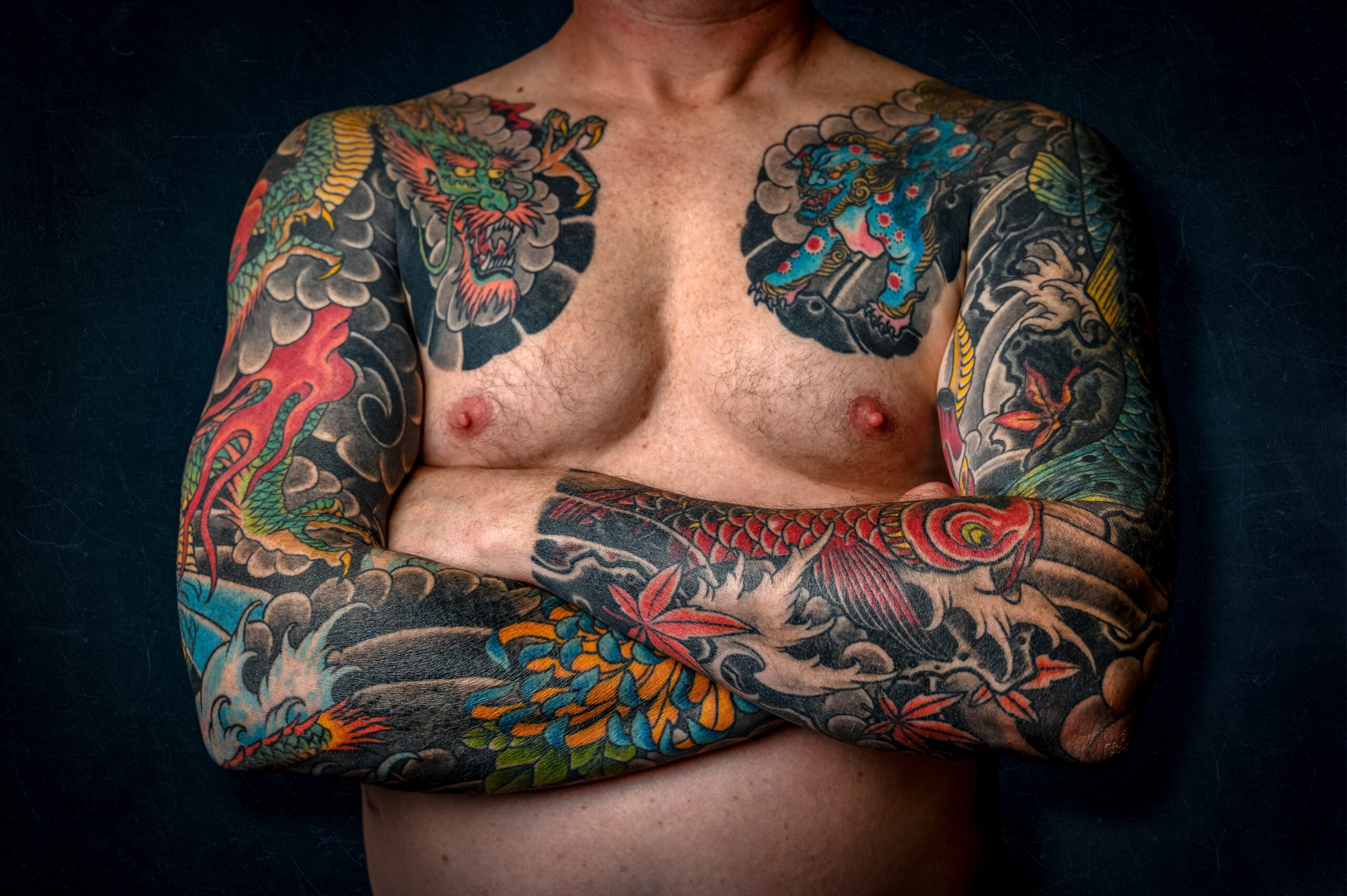
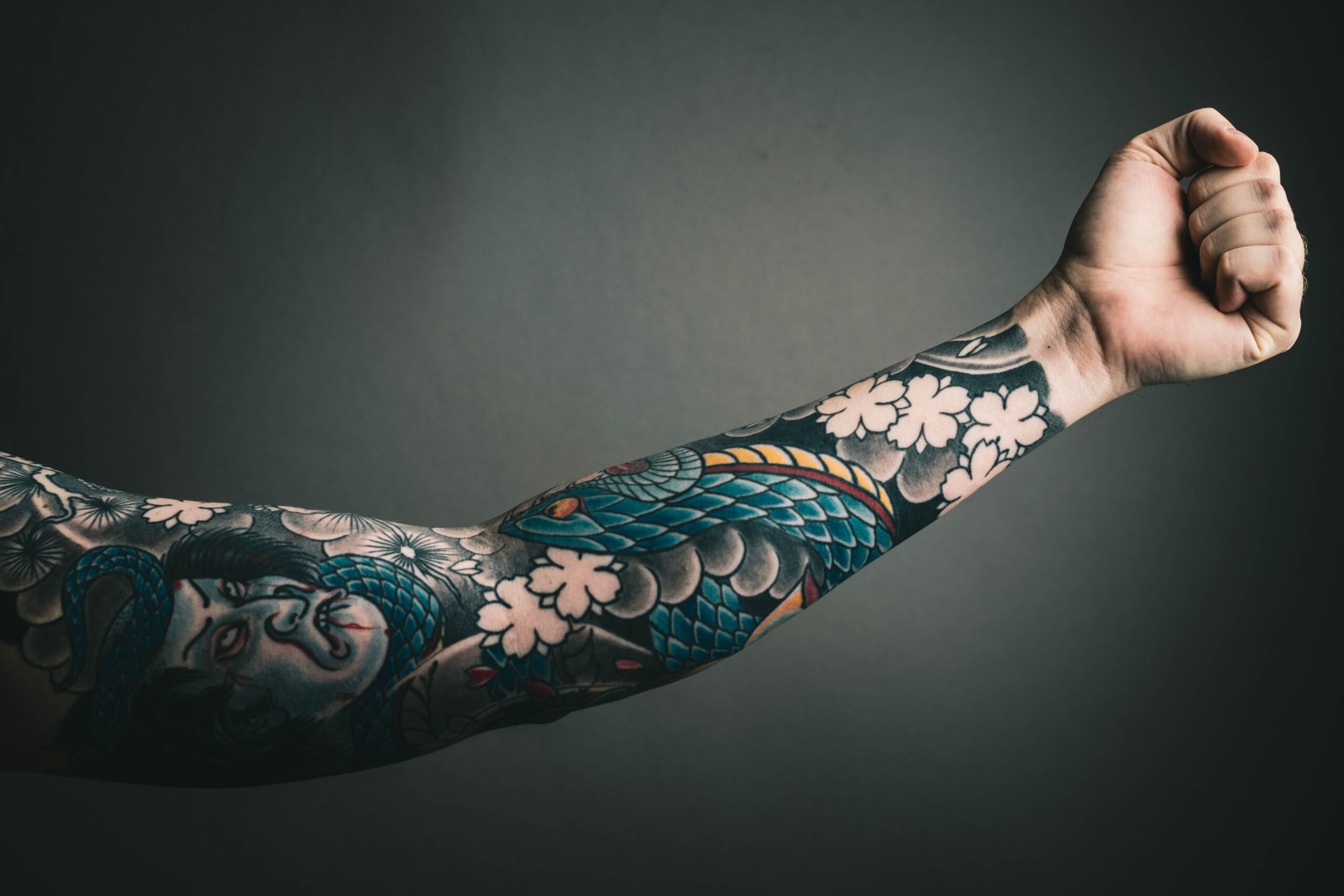
Tattoos have evolved from being a cultural or tribal symbol to a popular form of self-expression and body art in today’s society. With this increasing demand, the tattoo industry has grown exponentially, offering a wide range of styles, designs, and price points. As a result, determining the average cost of a tattoo can be quite challenging. This comprehensive guide aims to provide insights into the factors that influence tattoo pricing, helping you make an informed decision before committing to your next ink. Follow along with Tatt2Away®.
Tattoo Cost Calculator
“Tattoos are like a map of your life. They tell the story of who you are and where you’ve been.” – Michelle Delio
Factors That Affect Tattoo Prices
Several factors come into play when determining the cost of a tattoo, including:
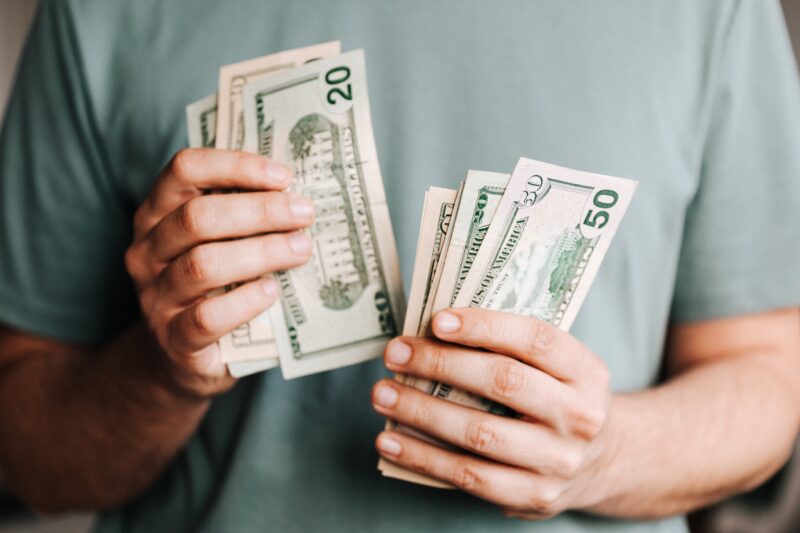
1. Size and Detail
One of the most significant factors affecting tattoo pricing is the size and intricacy of the design. Generally, larger tattoos with more detail will require more time and effort from the artist, resulting in higher costs. Many artists charge for their work on a per-hour basis.
2. Body Placement
The body part where the tattoo will be placed can also impact its price. Some areas, like the hands, feet, or ribs, can be more challenging or painful to tattoo, which may lead to higher costs.
3. Artist’s Experience and Reputation
The skill, experience, and reputation of your chosen artist can greatly influence the cost of your tattoo. Popular artists, or those with a significant following, typically charge more for their services, while less experienced or newer artists may have lower rates.
4. Shop Location
The geographical location of the studio can also play a role in pricing. Tattoo shops in larger cities or upscale neighbourhoods may charge higher prices to cover their overhead costs or cater to a more affluent clientele. On the other hand, smaller towns or less affluent areas may have lower prices.
5. Style
The style you choose can also impact the cost. Some styles, like realism or portrait tattoos, require more skill and expertise, which can translate into higher prices. Simpler styles, such as traditional or minimalistic designs, might be more affordable. Again, the time it takes to tattoo the ink can play a part in raising the price.
6. Colour vs. Black and Grey
Colour tattoos will often cost more than your typical black and grey tattoos, as they require additional time and skill to mix and apply the various shades of ink properly. Shading also requires more time and therefore more money, generally speaking.
Related Post: Tattoo Pain Guide
Understanding Tattoo Pricing Structures
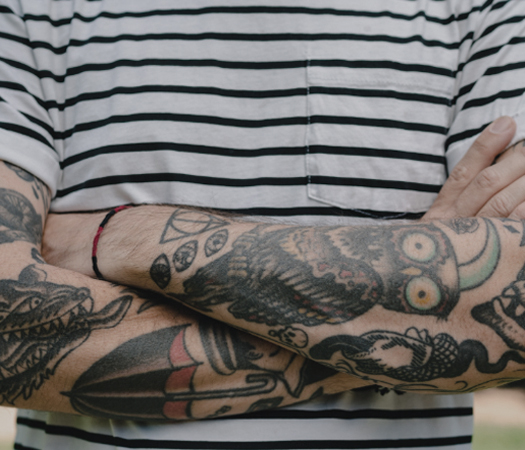
Tattoo pricing structures vary from one shop or artist to another. Some of the most common pricing methods include:
✴ Hourly Rates
Many tattoo artists charge an hourly rate, typically ranging from A$80 to A$450 per hour or more, depending on their skill level and reputation. Hourly rates are often used for custom designs or larger, more detailed pieces.
✴ Flat Rates
Some tattoo artists offer flat rates for specific designs, such as flash tattoos or smaller, simpler pieces. Flat rates can range from A$80 for a small, simple design to several hundred dollars for more intricate or larger tattoos.
✴ Minimum Charges
Most tattoo shops have a minimum charge, which covers the cost of their time, materials, and equipment. Minimum charges typically range from A$80 to A$150, regardless of the size or complexity of the design.
“Tattoos have a power and magic all their own. They decorate the body but they also enhance the soul.” – Michelle Delio
Average Tattoo Prices By Size and Complexity
To give you a clearer understanding of what to expect in terms of tattoo costs, here are some rough estimates based on size and complexity:
-Small Tattoos
Small tattoos, such as minimalistic designs, symbols, linework, or lettering, typically range from A$80 to A$300, depending on the detail and the artist’s rates.
-Medium Tattoos
Medium-sized tattoos, including half-sleeves or designs covering a significant portion of a body part, can cost between A$300 and A$1,200, sometimes more. The price will depend on the design’s complexity, the artist’s expertise, and the time required to complete the tattoo.
-Large Tattoos
Large tattoos, such as full sleeves, back pieces, or expansive designs that cover multiple body parts, can cost anywhere from A$1,500 to A$7,500 or more. The price will depend on the design’s detail, the artist’s rates, and the number of sessions required to complete the tattoo.
Related Post: Everything You Should Know About Colour Tattoos
Tattoo Cost By Body Placement
The complexity of tattooing a specific body part can indeed influence the overall cost of the tattoo. Some body parts offer a larger, more uniform surface, making them easier to tattoo. In contrast, bonier areas, such as the feet and ankles, can be more challenging and sensitive, requiring additional effort from the artist to ensure client comfort. The choice of body part for your tattoo can significantly affect the final price. Below are some common body parts people choose for tattoos, along with their average price ranges and duration.
Sleeve
Full-sleeve tattoos typically cost between A$2,000 and A$8,000.
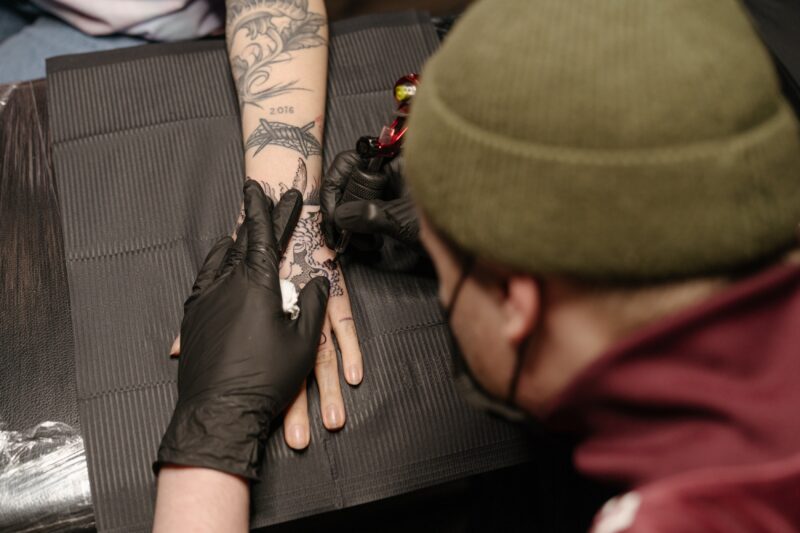
Half-Sleeve
On average, a half-sleeve tattoo, covering either the bicep or forearm, costs between A$700 and A$2,000.
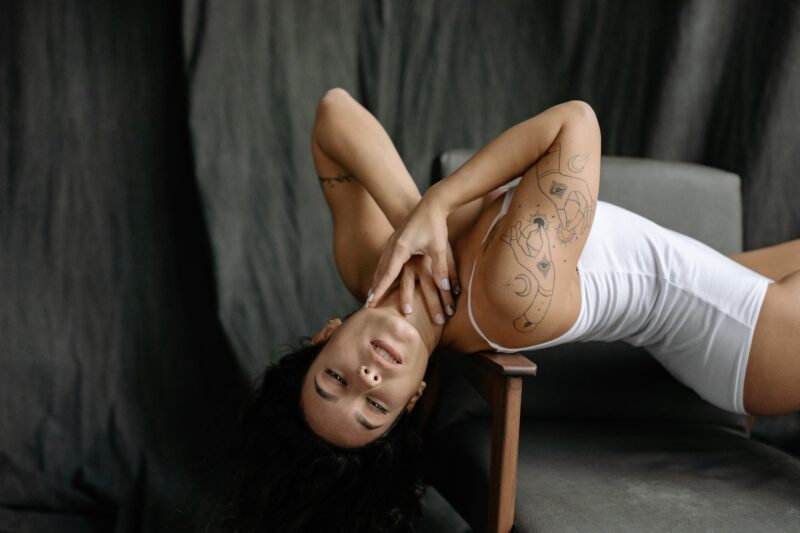
Shoulder
The cost of a shoulder tattoo ranges from A$300 to A$700, depending on the coverage. A more extensive, intricate shoulder tattoo extending onto the upper arm or back will naturally be more expensive.

Hip or Thigh
Hip or thigh tattoos can cost anywhere from A$750 to A$3,000, depending on the size. The tattoo’s design, whether it’s a simple grayscale or full-colour piece, will also affect the price.
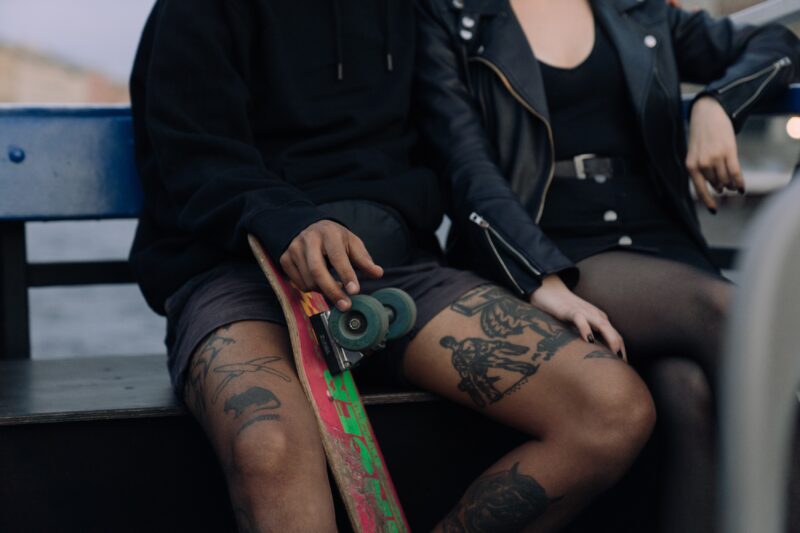
Hand or Finger
Finger or hand tattoos can start from as low as A$75 for basic designs and go up to A$450 for more intricate ones. Most people don’t spend a lot on finger tattoos since they tend to fade quickly. Some shops offer deals where tiny tattoos are priced around A$40.
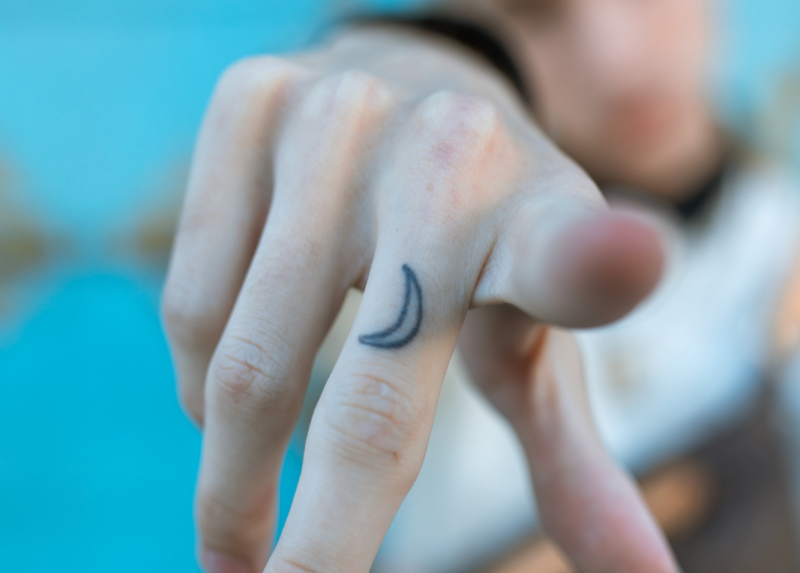
Partial or Full Chest
The price of a chest tattoo can range from A$750 to A$3,000, depending on whether it’s a medium-sized piece covering part of the chest or an expansive design spanning the entire area.

Partial or Full Back
Back tattoos can cost between A$2,250 and A$7,500 or more, depending on factors such as size, colour, detail, and complexity.
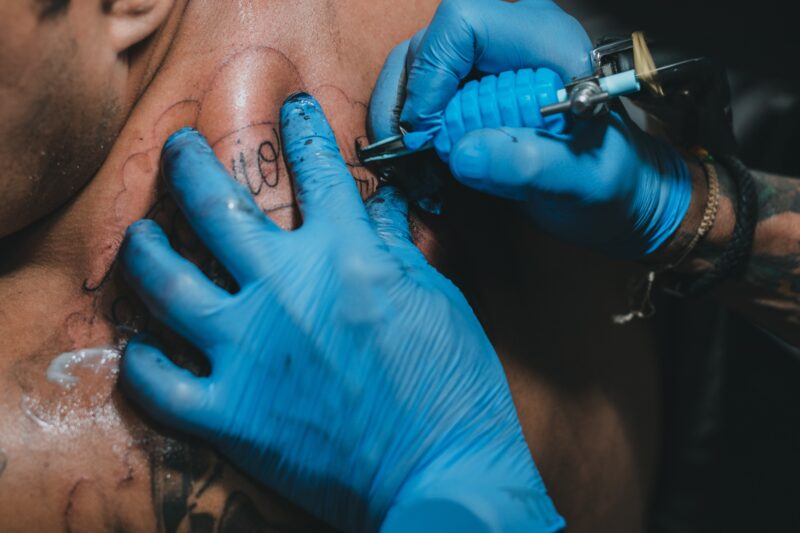
Related Post: The Easiest and Hardest Tattoo Ink Pigments to Remove
Tips For Budgeting For Your Tattoo
To ensure you get the best value for your money, consider the following tips when budgeting for your tattoo:
★ Research Tattoo Artists
Take the time to research tattoo artists in your area and compare their portfolios, styles, and pricing structures. This will help you find an artist who matches your desired style and fits within your budget.
★ Schedule a Consultation
Schedule a consultation with your chosen tattoo artist to discuss your design ideas and get a better understanding of the costs involved. This will also give you an opportunity to ask any questions and address any concerns you may have.
★ Save Up for Your Tattoo
It can be essential to save up for your tattoo to ensure you can afford the design and artist you want, especially if your tattoo is done by a popular artist or has a lot of detail. Remember that quality work often comes at a higher price, so it’s better to wait and save up for a tattoo you’ll be happy with in the long run.
★ Avoid Bargain Hunting
While it’s essential to consider the cost, don’t compromise on the quality of the tattoo by bargain hunting. Cheap tattoos can often lead to subpar work, infections, or fading, which may result in additional costs for touch-ups or removal.
★ Consider Pricing Specials
Some tattoo shops offer specials or discounts on certain occasions, such as flash sales or promotions for new artists. Keep an eye out for these opportunities to potentially save some money on your tattoo.
Additional Costs and Fees to Consider
When budgeting for your tattoo, be sure to factor in additional costs, such as:
-Aftercare Products
Proper aftercare is essential for the healing and longevity of your tattoo. Budget for aftercare products, such as antibacterial soap, ointment, and lotion, which can cost between A$15 and A$45.
-Touch-Ups
Depending on the design and your skin’s healing process, your tattoo may require touch-ups to maintain its appearance. Touch-up costs can vary, so discuss this with your tattoo artist ahead of time.
-Tipping Your Tattoo Artist
Tipping your tattoo artist is a standard practice and a way to show appreciation for their work. A tip of 15-20% of the total cost of the tattoo is customary.
-Tattoo Removal
When there is tattoo regret, there is a solution. Tatt2Away offers complete tattoo removal, revision, and cover-up services. Tattoos don’t have to be permanent anymore. Contact us today to book a consultation.
Conclusion: Making Informed Decisions About Your Tattoo Investment
Understanding the factors that influence tattoo pricing and the average cost of tattoos can help you make informed decisions when planning your next ink. Remember that quality work comes at a higher price, so it’s essential to save up and invest in an experienced, reputable tattoo artist. By doing thorough research, setting a budget, and considering all additional costs, you can ensure that you get a tattoo that you’ll be proud to wear for a lifetime.
With this comprehensive guide to tattoo costs, you are now better equipped to make informed decisions about your next tattoo investment. Always remember that quality work is worth the investment, and a great tattoo is something you’ll cherish for the rest of your life. For more content related to how much tattoos cost, check out our blog.
When Should I Invest in Tattoo Removal? How Do I Know I Am Ready?
Deciding to spend money on tattoo removal is a personal choice that depends on your individual circumstances and preferences. Here are a few factors to consider when making this decision:
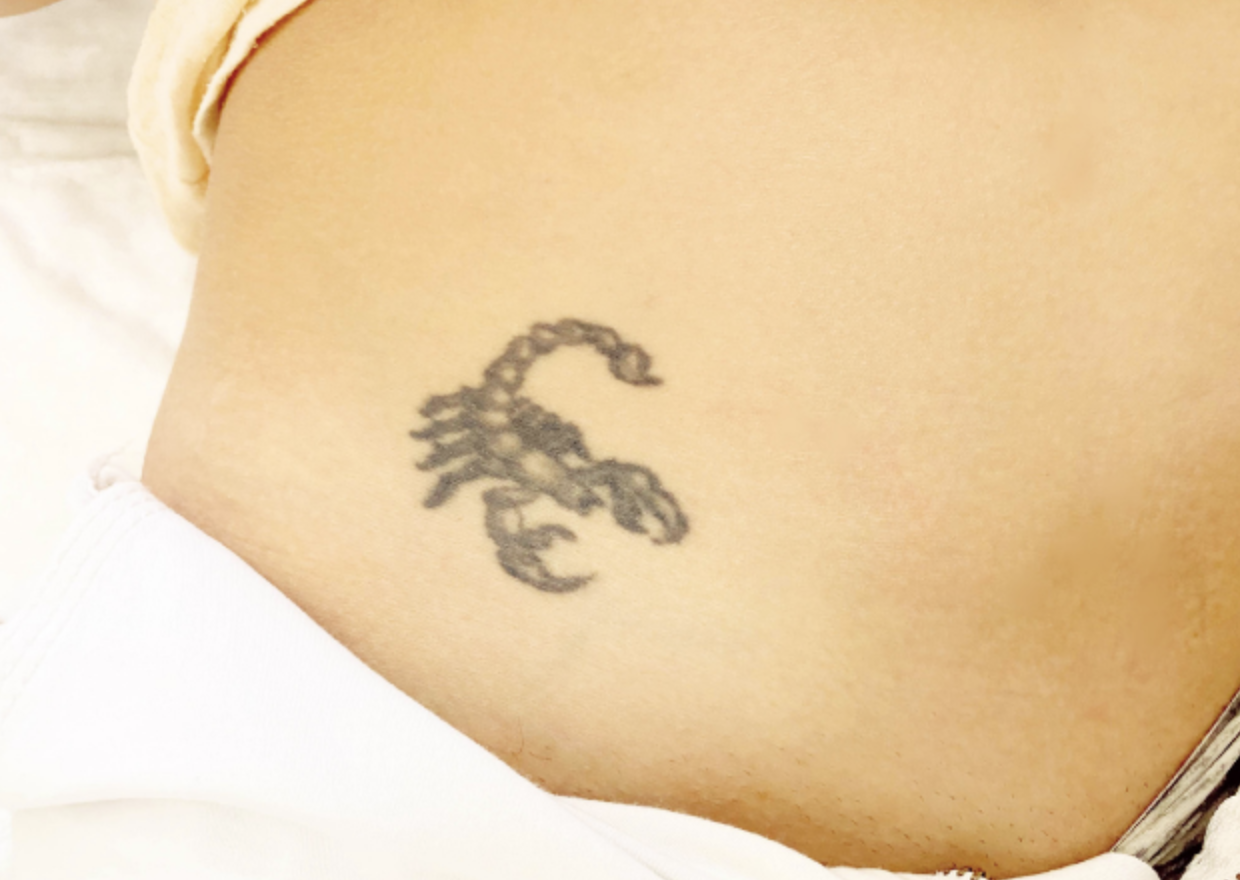
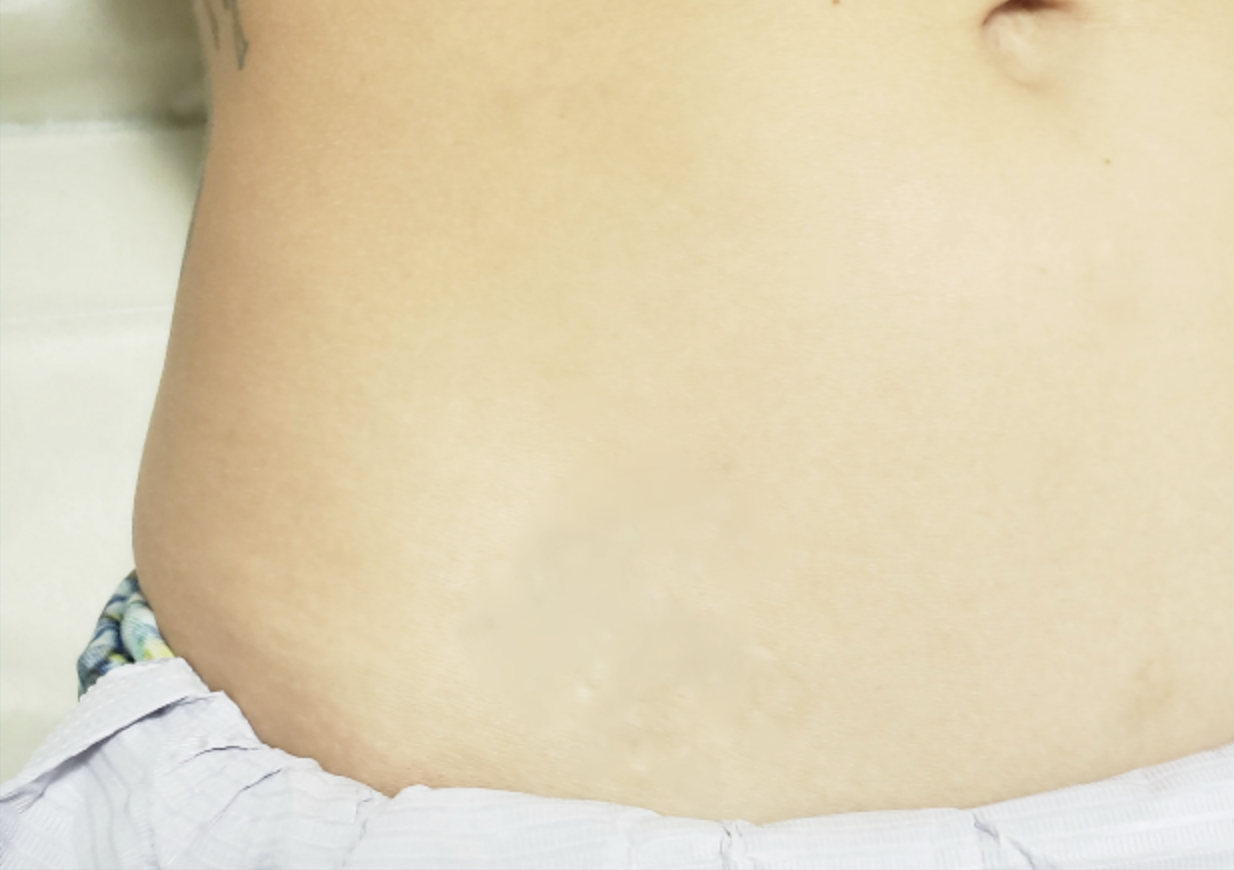
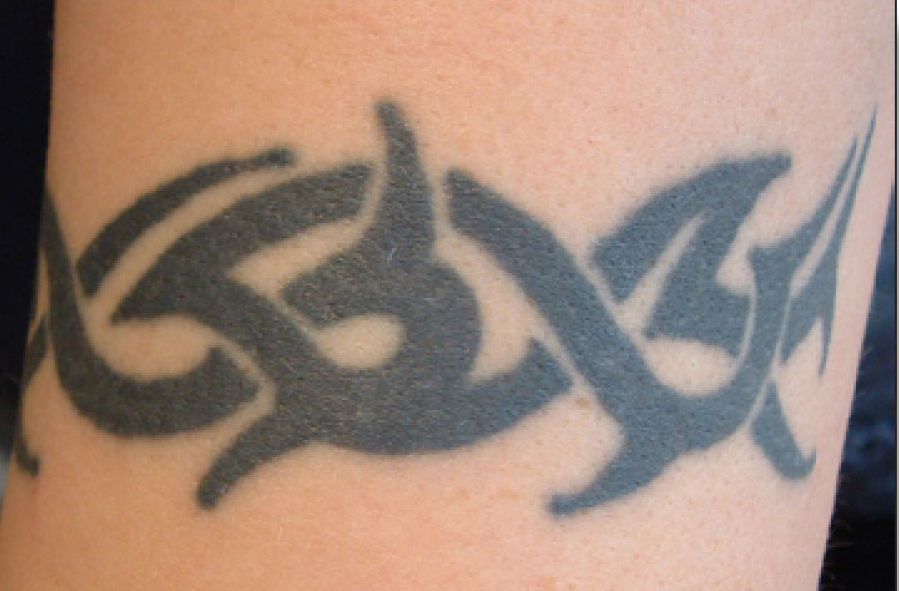
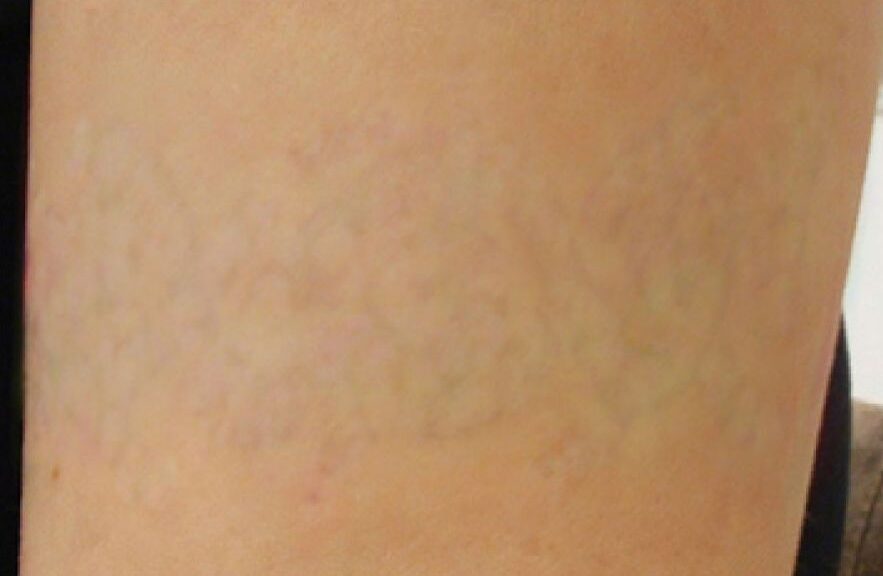
Personal Discomfort or Dissatisfaction: If you find yourself feeling uncomfortable with your tattoo or dissatisfied with its appearance, it might be a strong reason to consider tattoo removal. This discomfort could stem from changes in your personal taste, a desire to remove a tattoo that’s tied to a past relationship, a job requirement, or simply not feeling connected to the tattoo anymore.
Professional or Social Considerations: Some workplaces have strict policies about visible tattoos, and if your tattoo is affecting your career prospects or professional image, it might be worth thinking about removal. Similarly, if you’re experiencing social discomfort or judgment because of your tattoo, removal could be a solution to ease those concerns.
Fading or Degradation: Tattoos can fade, blur, or distort over time, especially if they weren’t done well or have been exposed to sun damage. If your tattoo has lost its original appeal or has become an eyesore, you might want to consider removal.
Tatt2Revise® is a great option to improve the quality of your tattoo or replace it with a new one!
Allergies or Health Concerns: In some rare cases, people may develop allergic reactions or health complications related to their tattoos. If you’re experiencing ongoing allergic reactions, skin irritations, or other health issues, it’s important to consult with a medical professional, and removal might be recommended.
Financial Considerations: Tattoo removal can be expensive, as previously discussed. It’s important to assess your budget to determine if you can comfortably afford the removal process. Since you might need multiple sessions and there could be additional costs, factor these into your decision-making.
Tatt2Away offers financing options to help you start your tattoo removal journey without putting too much strain on your finances!
Ultimately, the decision to invest in tattoo removal is a personal one, based on your feelings and circumstances. If you’re unsure, you can consult with a professional tattoo removal specialist who can offer guidance based on your specific situation. They can evaluate your tattoo and discuss the expected results, cost, and potential risks to help you make an informed decision.




Here Are Some Related Topics to Tattoo Removal Costs…
Factors Affecting Cost: Explore the various factors that can influence the cost of tattoo removal, such as tattoo size, colour complexity, location, and the type of removal method used.
Comparison of Tattoo Removal Methods: Discuss and compare different tattoo removal methods, including laser removal, surgical excision, dermabrasion, and creams. Compare their effectiveness, costs, and potential side effects.
Average Number of Sessions: Understand that tattoo removal usually requires multiple sessions and delve into the average number of sessions needed for different types of tattoos. Discuss how this impacts the overall cost.
Cost-Benefit Analysis: Analyse the cost-benefit aspect of tattoo removal. Explore whether the financial investment in tattoo removal is worthwhile compared to keeping the tattoo or getting a cover-up.
Clinics and Pricing: Provide information about different tattoo removal clinics, their reputation, and the pricing models they follow. Discuss the importance of researching and choosing a reputable clinic for safe and effective removal.
Tips for Reducing Costs: Explore strategies for minimising tattoo removal costs, such as negotiating package deals, seeking discounts or promotions, and considering payment plans or financing options.
Insurance Coverage: Investigate whether tattoo removal is covered by insurance policies and discuss the circumstances in which insurance might cover the cost of tattoo removal.
Tattoo Removal Cost by Region: Discuss regional variations in tattoo removal costs, considering factors such as the cost of living, availability of providers, and local market competition. Tatt2Away is offered at Tatt2Away Centres, which regularly offer promotions, as well as Tatt2Away Licensed Locations that offer local promotions as well! So check our website regularly to see what cost savings are available in your region.
DIY Tattoo Removal and Its Risks: Explore the risks and potential costs associated with attempting DIY tattoo removal methods, such as using creams or homemade remedies. Emphasise the importance of seeking professional assistance for safe and effective removal.
Aftercare: Highlight the importance of proper aftercare following tattoo removal and discuss any additional costs that may arise from purchasing post-treatment care products or attending follow-up appointments.

